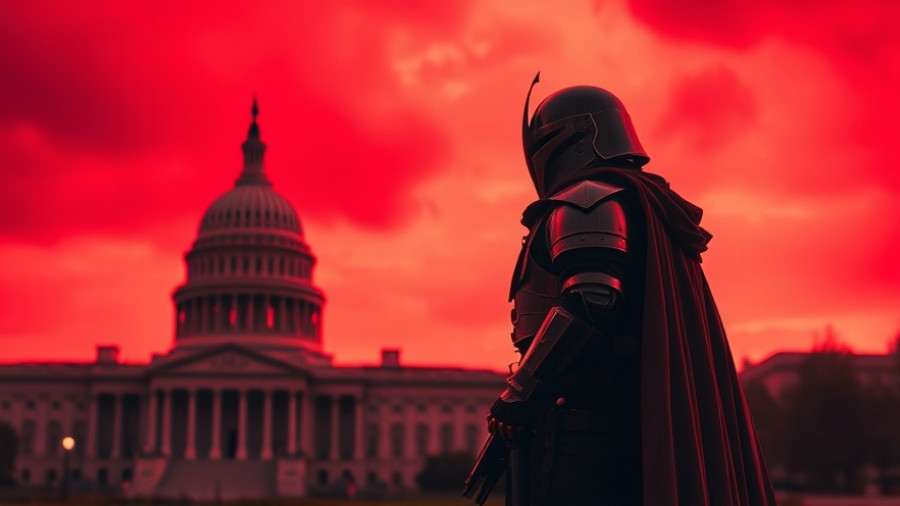
A Song of Protest: The Battle for Our Rights
When Sam O’Hara decided to express his dissent against the deployment of National Guard members on the streets of Washington, D.C., little did he know that his choice of soundtrack would lead him into a significant legal battle over constitutional rights. In a lawsuit filed on October 23, O’Hara argues that his arrest for playing the infamous "Imperial March" from Star Wars foreshadowed a troubling crackdown on free speech.
The Clandestine Alliance of Pop Culture and Politics
The history of protest music runs deep, with artists throughout the decades using their platforms to criticize oppression and government actions. O’Hara’s decision to play a theme associated with a fictional fascist regime — that of Darth Vader and the Galactic Empire — is particularly poignant. This cultural reference engages a modern audience and captures the essence of the struggle against perceived authoritarianism. Whether it's the Beatles singing about revolution or the punk rock anthems of the '80s, music has often been the heartbeat of resistance. O’Hara’s suit raises the question: can humor in protest diminish its impact, or does it uniquely challenge traditional notions of dissent?
The Anatomy of a Legal Battle
O’Hara was filming the National Guard while playing the "Imperial March" on September 11 when an Ohio National Guard sergeant threatened to call the police if he didn’t stop. Shortly thereafter, Metropolitan Police officers indeed showed up and took him into custody for about 20 minutes, tightly handcuffing him. This incident, according to the American Civil Liberties Union (ACLU), breaches First and Fourth Amendment rights, emphasizing that all individuals are entitled to peacefully protest — irrespective of how comical that protest may seem to those in authority.
The Wider Implications of This Incident
This case isn’t merely about O’Hara; it challenges the broader paradigm of how governmental powers can stifle free speech. The ACLU pointedly remarked in its statement, "The government doesn’t get to decide if your protest is funny, and government officials can’t punish you for making them the punch line." This reflects ongoing tensions as National Guard troops have been deployed across major U.S. cities to manage protests — raising the specter of militarized policing in civilian spaces.
Where Do We Go from Here?
The implications of O’Hara’s story extend beyond personal legal grievances. As society grapples with authority, oversight, and the rights of citizens, future outcomes of such cases could shape the landscape of civil liberties. What does it mean when humor marries protest, and how might this influence public reaction and engagement in the political dialogue?
Taking Action with Your Voice
As discussions surrounding freedom of speech evolve, it’s essential to stay informed and, if needed, take steps toward clarifying your stance or advocating for change. Understanding your rights is paramount, and the unfolding dialogue about O’Hara’s case provides a clear opportunity for citizens to engage actively.
Would you like to clarify your Brand? Explore how you can use your voice in advocacy and learn more about protecting your civil liberties.
 Add Row
Add Row  Add
Add 




Write A Comment